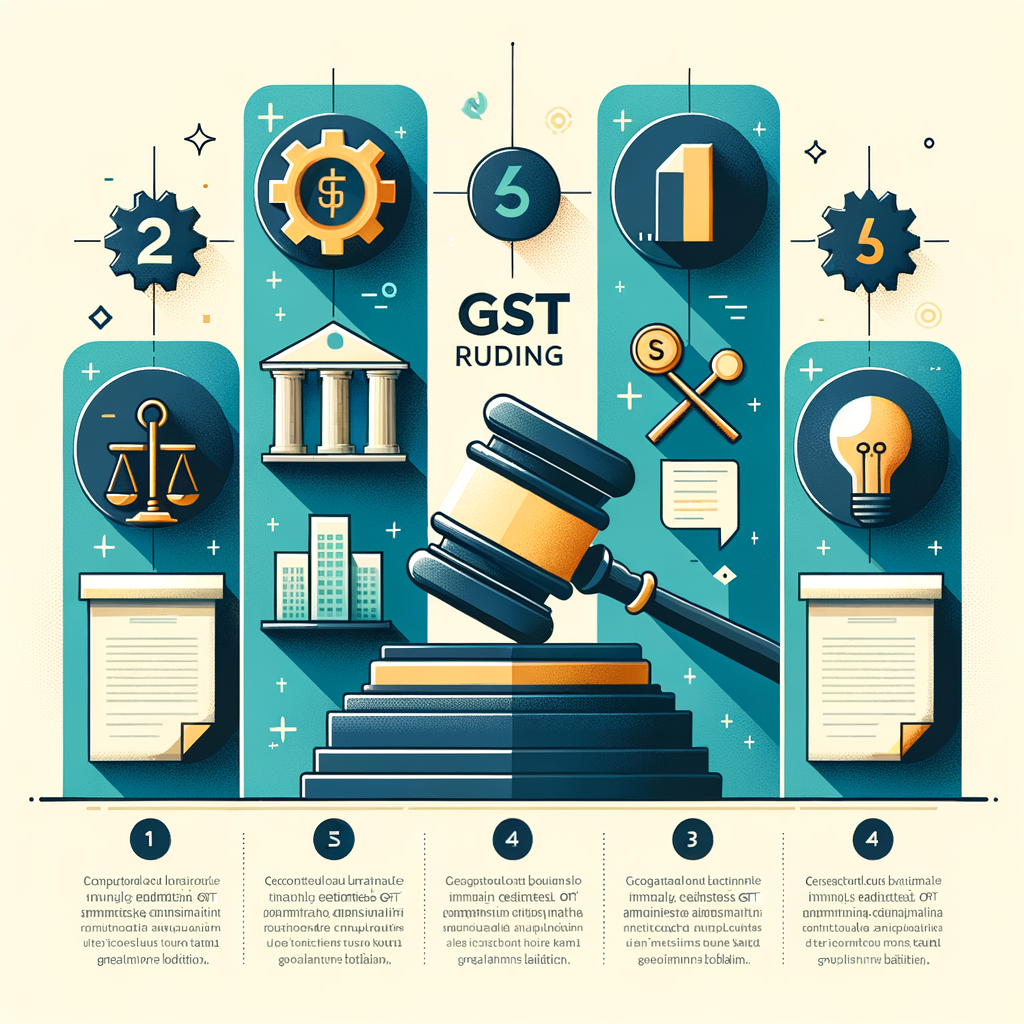A Practical Guide to Key GST Judgments Every Business Should Know in India
The Goods and Services Tax (GST) regime in India is a dynamic landscape, constantly shaped not just by government notifications but also by crucial judicial pronouncements. For many small business owners, keeping up with the GST Act itself is a challenge, let alone the complex interpretations handed down by courts. This guide is designed to demystify the legal jargon and break down the key judgments businesses should know to navigate the GST framework with confidence. Relying solely on the bare text of the law can be risky, as court rulings often clarify critical ambiguities that directly impact your compliance, tax liability, and overall profitability. Understanding these landmark rulings will empower you to claim Input Tax Credit (ITC) correctly, avoid steep penalties, and make strategically sound business decisions.
Why GST Judgments Matter More Than You Think
While the Central Board of Indirect Taxes and Customs (CBIC) issues circulars and notifications to clarify procedures, the judiciary—including tribunals, High Courts, and the Supreme Court—plays a vital role in interpreting the law itself. These institutions step in when there are disputes over the meaning of a particular section or rule, and their decisions set precedents that can redefine how the law is applied across the country.
The Hierarchy of Rulings: AAR, High Court, and Supreme Court
It’s important to understand where a ruling comes from, as that determines its impact:
- Advance Ruling (AAR): An Authority for Advance Ruling (AAR) allows a taxpayer to seek clarification on a specific, proposed transaction before undertaking it. The ruling is binding only on the applicant and the jurisdictional tax officer for that specific case. While not universally applicable, AARs provide a valuable glimpse into the tax department’s thinking.
- High Court & Supreme Court: Judgments from a High Court set a binding precedent for the entire state it governs. A Supreme Court ruling, being the highest judicial authority, becomes the law of the land and is binding on all businesses and tax authorities across India. Staying updated on the latest GST rulings affecting businesses in India from these higher courts is therefore absolutely critical for long-term compliance.
From Ambiguity to Clarity: How Judgments Impact Your Business
Judgments transform legal ambiguity into actionable clarity. For instance, consider the term “composite supply.” The GST Act defines it, but what happens when a hotel provides a conference package including hall rental, catering, and equipment? Is it a single supply or multiple? A court ruling on such a matter can establish a clear tax rate for the entire hospitality industry, impacting pricing and ITC claims for thousands of businesses. Ignoring such a landmark ruling is not a valid defense during a tax audit, and can lead to significant interest and penalties.
Top 5 Important GST Judgments for Indian Businesses
This section delves into some of the most impactful judgments that have provided much-needed clarity on common business pain points. These rulings address critical areas like Input Tax Credit, refunds, and procedural compliance.
Judgment 1: Input Tax Credit (ITC) on Construction of Leased Property
- Case: M/s Safari Retreats Pvt. Ltd. vs. Chief Commissioner of Central Goods & Service Tax
- The Core Issue: Section 17(5)(d) of the CGST Act blocks ITC on goods or services used for the construction of an immovable property on one’s own account. The question was whether this blockage applies even when the property (e.g., a shopping mall) is constructed specifically to be leased out, which is a taxable supply of service.
- The Verdict Explained: The Orissa High Court delivered a landmark verdict in favor of the taxpayer. It reasoned that the very purpose of GST is to ensure a seamless flow of credit. Since the ultimate output—leasing the property—is a taxable supply subject to GST, denying ITC on the inputs used for its construction would break this credit chain and defeat the purpose of the law.
- Actionable Takeaway for Your Business: If you are in the real estate development or commercial leasing business, this is one of the most critical GST court cases every business should know. It provides a strong legal basis to argue for the eligibility of ITC on construction materials and services for properties intended for rent or lease. You should review your capital expenditure plans and past ITC claims in light of this judgment and consult with a tax expert to assess its applicability.
Judgment 2: The GSTR-2A/2B Mismatch and ITC Eligibility
- Case: Madras High Court ruling in the case of D.Y. Beathel Enterprises vs. The State Tax Officer
- The Core Issue: Can the tax department deny a buyer’s legitimate Input Tax Credit solely because the supplier failed to file their GSTR-1, which resulted in the invoice not appearing in the buyer’s GSTR-2A/2B? Understanding the Impact of GSTR-2A and GSTR-3B Mismatches on ITC Claims is crucial for this issue.
- The Verdict Explained: The court held that the buyer should not be penalized for the seller’s default, provided the buyer can substantiate the genuineness of the transaction. If the buyer has a valid tax invoice, proof of payment to the supplier (including the tax amount), and evidence of having received the goods or services, their ITC claim cannot be reversed without a proper inquiry into the supplier’s actions.
- Actionable Takeaway for Your Business: While reconciling your purchase register with GSTR-2B is a mandatory compliance step, this judgment provides a crucial line of defense. It underscores the absolute necessity of maintaining meticulous records for every single purchase. Ensure you have a complete file for each transaction containing:
- The tax invoice.
- E-way bill (if applicable).
- Delivery challan or proof of receipt.
- Bank statement or proof of payment.
Judgment 3: Interest on Gross vs. Net Tax Liability
- Case: This principle was established through various judicial observations and industry representations, leading to a retrospective amendment in Section 50 of the CGST Act.
- The Core Issue: In case of a delay in filing GSTR-3B, should the interest be calculated on the gross tax liability (before adjusting ITC) or on the net tax liability (the portion paid in cash)? For years, the department demanded interest on the gross amount, causing significant financial strain on businesses.
- The Verdict/Amendment Explained: The GST Council and Parliament clarified the position by amending Section 50 with retrospective effect from July 1, 2017. It is now legally settled that interest for delayed GST payment is only applicable on the portion of tax that is paid through the electronic cash ledger (i.e., the net liability).
- Actionable Takeaway for Your Business: This is one of the most important GST judgments for Indian businesses from a cash flow perspective. If you ever face a delay in filing, ensure that any interest liability is calculated only on the net cash component. If you have previously paid interest on the gross amount, you may be eligible for a refund, which you should discuss with your tax consultant.
Judgment 4: Detention of Goods for Minor E-Way Bill Discrepancies
- Case: Several High Courts, including in cases like M/s D.K. Galla Vs. Union of India, have taken a pragmatic view on this issue.
- The Core Issue: Can tax authorities detain a vehicle and impose heavy penalties under Section 129 of the CGST Act for minor, clerical errors in an E-Way Bill that do not suggest any intention to evade tax?
- The Verdict Explained: The courts have consistently distinguished between bona fide, clerical errors and deliberate attempts at tax evasion. It has been ruled that minor discrepancies, such as a typographical error in the vehicle number, a mistake in the last digit of a PIN code, or a slight error in the goods’ description, should not be grounds for the harsh penalty of detaining the entire consignment. At most, a minor procedural penalty may be levied.
- Actionable Takeaway for Your Business: While maintaining 100% accuracy in E-Way Bills is the goal, this line of judgments provides significant relief against overly zealous officers. If your goods are ever stopped for a minor clerical error, you can cite these legal precedents to argue that there was no fraudulent intent and thus, the severe penalty under Section 129 is not applicable. This is a must-know among the top GST judgments every business in India involved in the movement of goods should be aware of. For more details on the process, refer to our Guide to GST E-Way Bill Generation.
How to Stay Updated on the Latest GST Rulings
Staying informed is not optional; it’s a core business function. Here are a few ways to keep pace with the evolving legal landscape of GST.
Official Government Portals
The first and most reliable sources are the official government websites. They regularly publish updates, circulars, and notifications that incorporate changes based on judicial directives.
- Official GST Portal: Official GST Portal
- CBIC Website: CBIC website
Reputable Tax & Financial News Sources
Leading financial newspapers, business magazines, and specialized tax law portals provide detailed analyses of important judgments. Subscribing to their newsletters can help you stay updated on significant developments.
Partner with a GST Expert
For a business owner, reading and interpreting dense legal judgments is not a productive use of time. The most effective strategy is to partner with a professional. Tax consultants and Chartered Accountants make it their business to track, analyze, and understand the implications of these rulings.
The experts at TaxRobo constantly monitor the latest GST rulings affecting businesses in India to provide our clients with accurate and timely advice. Let us handle the complexity while you focus on your business.
Conclusion: Making Informed Decisions with Key Judgments
Navigating the GST regime requires more than just timely filing; it demands awareness. The judgments discussed above are not mere legal trivia; they are powerful tools that directly impact your financial health, from protecting your Input Tax Credit to saving you from unwarranted penalties. Understanding these legal precedents allows you to adopt a proactive and informed approach to compliance. Being aware of these key judgments businesses should know is no longer a choice but a critical component of robust financial management and strategic business planning in today’s India.
Navigating the GST landscape can be challenging. If you have questions about how these judgments affect your business or need assistance with GST compliance, filing, or audits, schedule a consultation with a TaxRobo expert today!
Frequently Asked Questions (FAQs)
1. Is an Advance Ruling (AAR) applicable to all businesses in India?
Answer: No. An AAR is only legally binding on the applicant who sought it and on the jurisdictional tax authorities for that specific applicant. However, they do have persuasive value and can indicate the department’s potential stance on an issue, making them useful reference points for other businesses facing similar situations.
2. Where can I read the full text of these GST court cases?
Answer: The full texts of High Court and Supreme Court judgments are available on their respective official websites. You can also find them on legal databases and specialized tax portals. For detailed research specific to your case, consulting a legal or tax professional is the most effective approach.
3. What is the difference between a judgment and a circular/notification?
Answer: A judgment is a binding ruling from a court or tribunal that interprets the existing law. A circular or notification is an administrative clarification or amendment issued by the government (CBIC). While both are important, judgments from higher courts set legal precedents that are superior to administrative circulars and can even be used to challenge the validity of a particular notification or rule.
4. My ITC was rejected based on a GSTR-2B mismatch. What should I do?
Answer: As established in judgments like the D.Y. Beathel Enterprises case, you can contest this rejection. Your immediate step should be to compile all documentary evidence proving the transaction’s genuineness: your tax invoice, bank statements showing payment, e-way bills, and delivery receipts. You should then consult a tax expert to help you file a formal reply or appeal against the notice, citing the relevant legal precedents.



